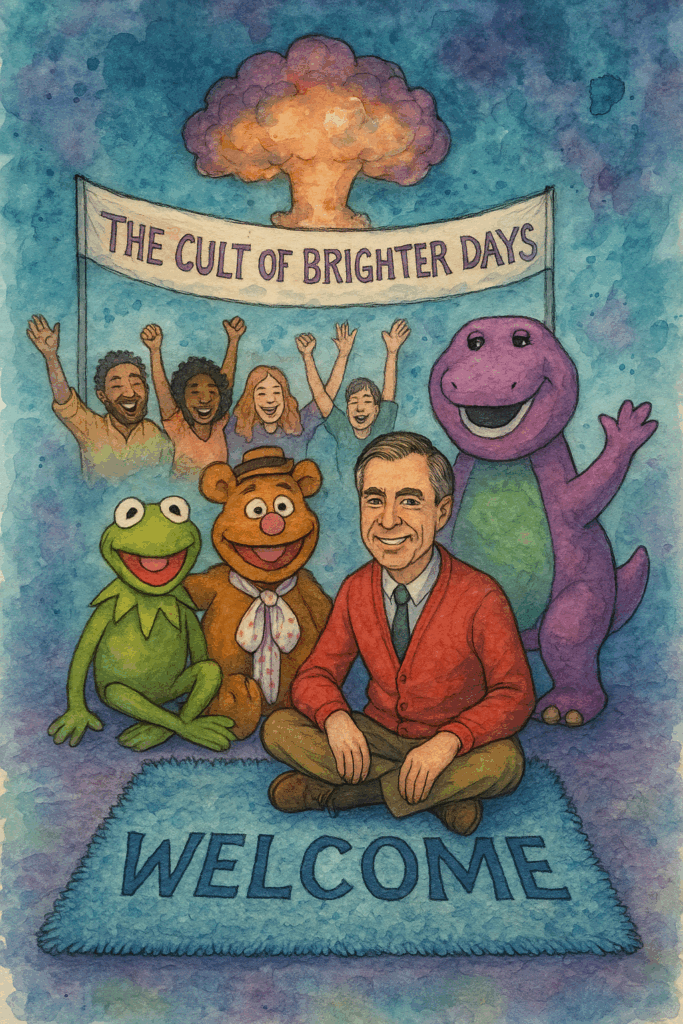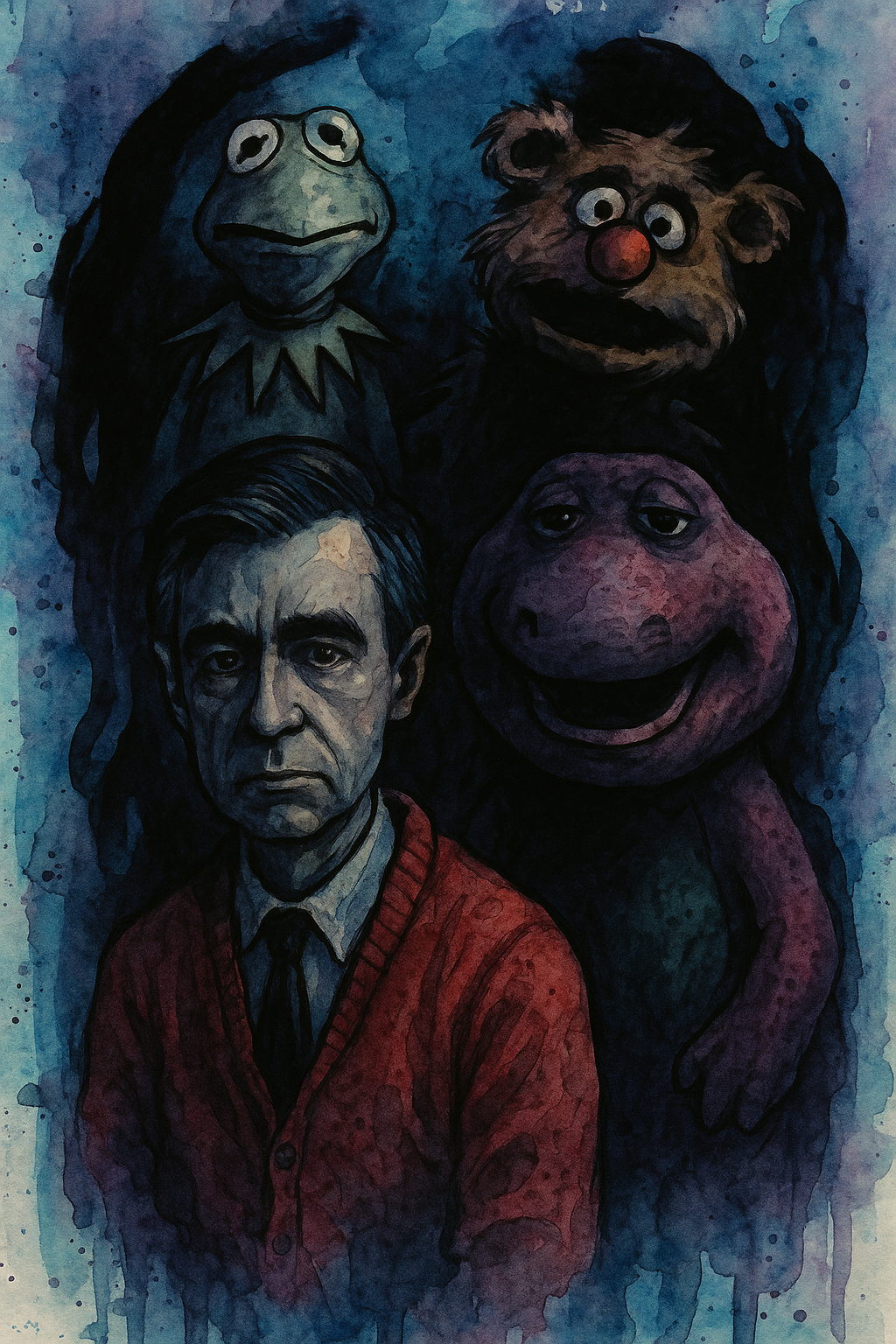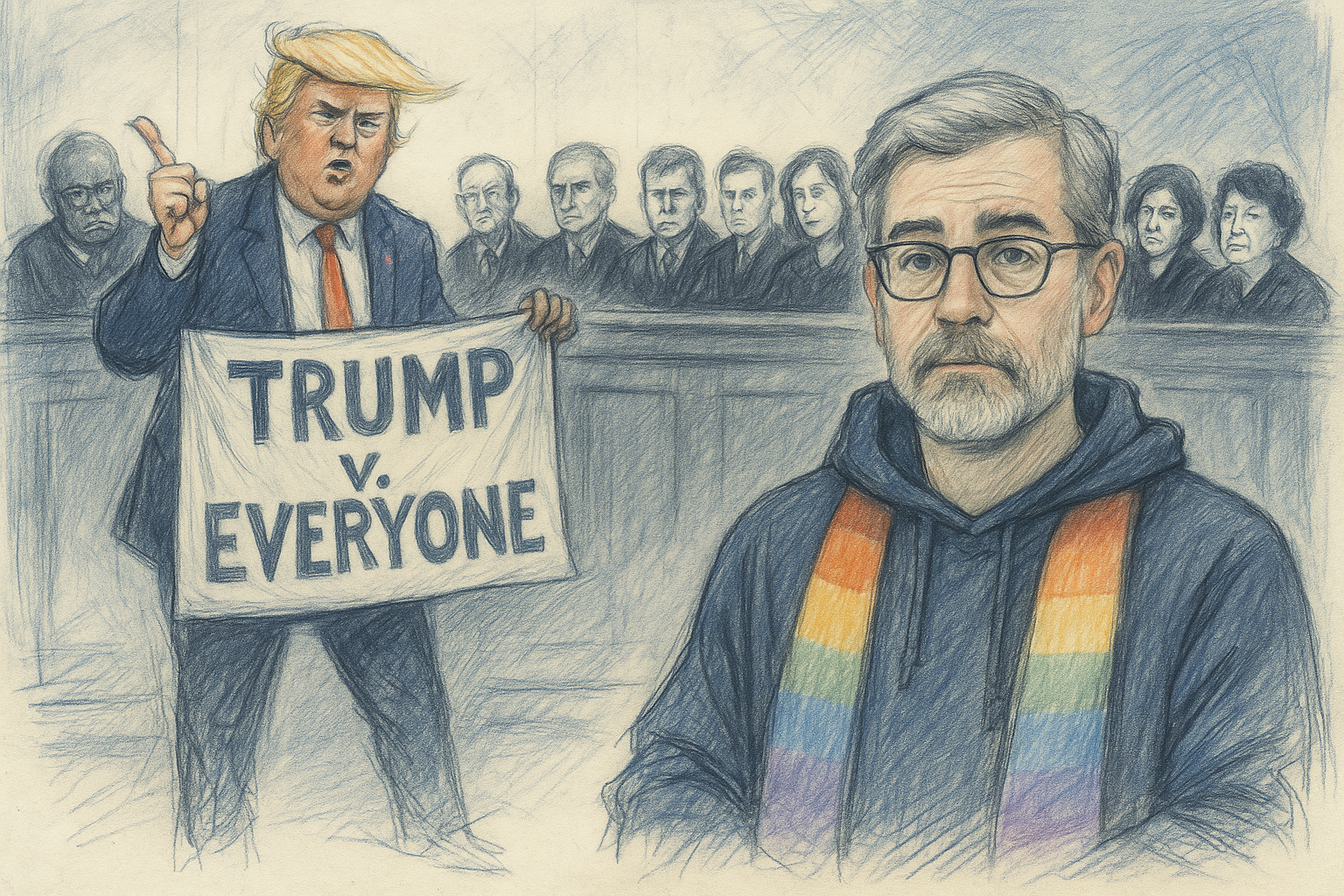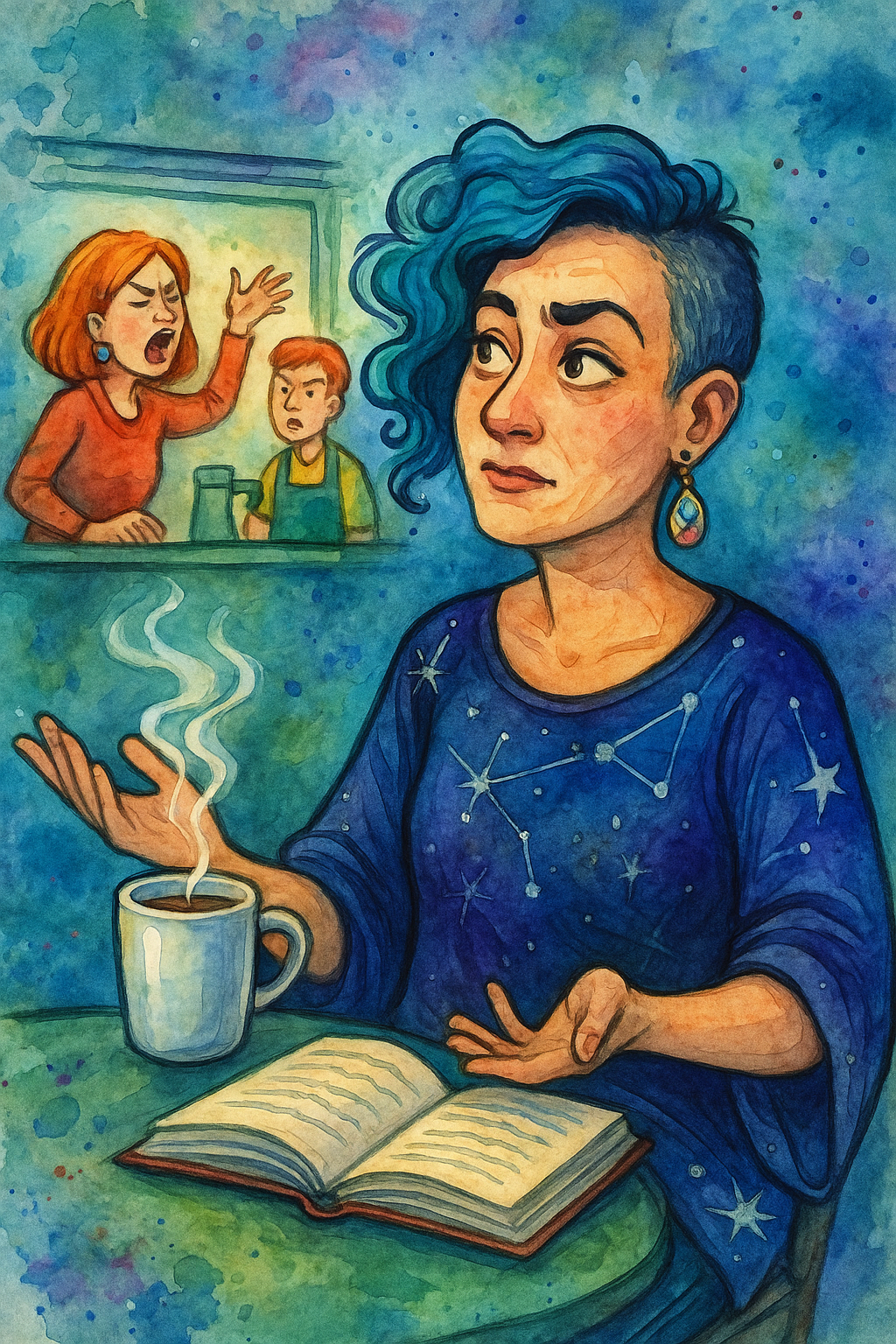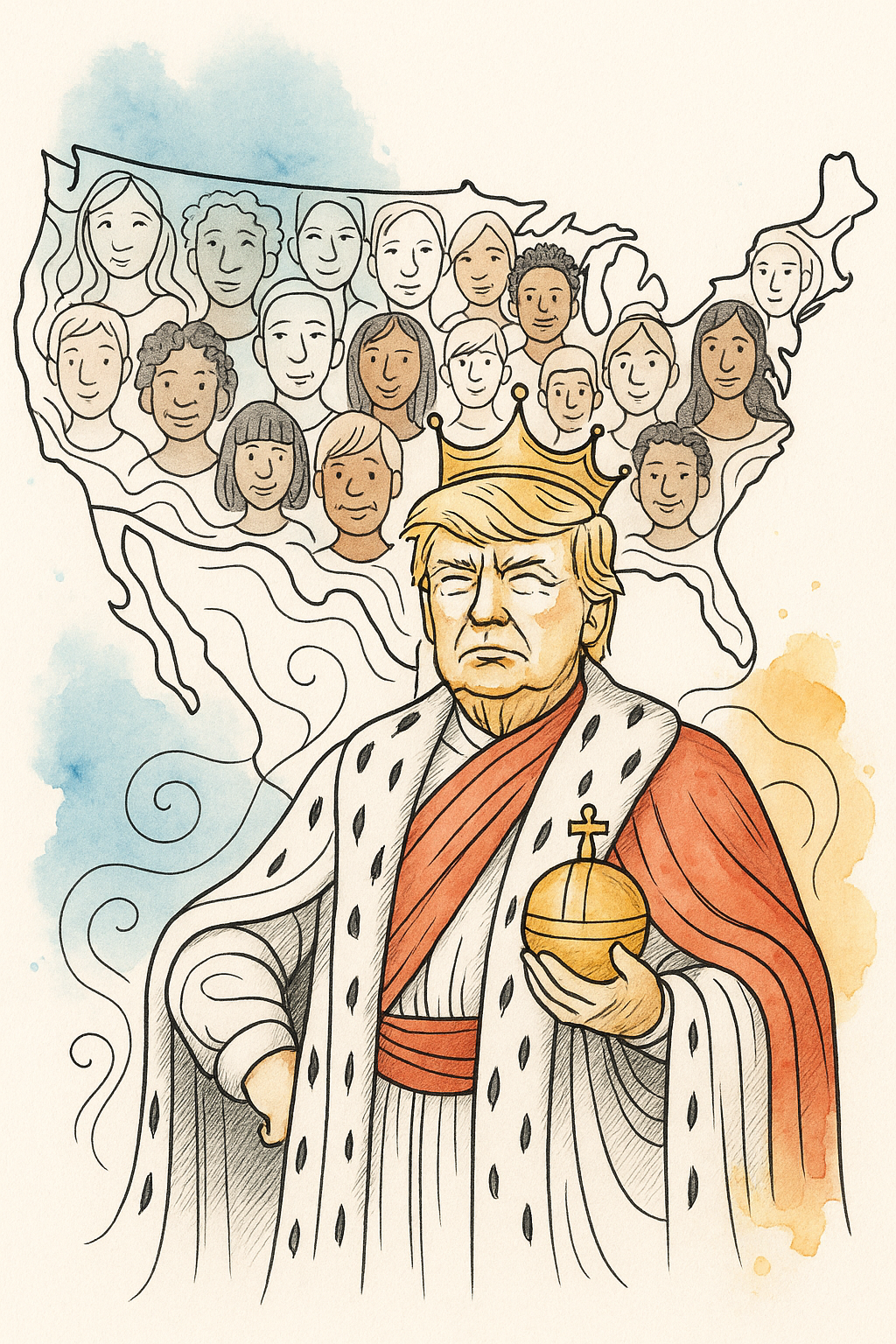Mr. Rogers taught me kindness.
Sesame Street taught me acceptance.
Barney taught me how to lie through a toothy purple grin.
Together, they built the blueprint for world domination.
Ah, PBS. The network that raised us on calm voices, puppets with emotional depth, and theme songs engineered to colonize our brainstems forever.
While other kids were getting their dopamine fix from cartoon mayhem and sugar-addled toy commercials, we were sitting on carpet squares, absorbing emotional scaffolding in 30-minute increments.
And it worked. Sort of.
Mr. Rogers: Emotional Intelligence in Cardigan Form
Fred Rogers looked into a camera and said, “I like you just the way you are,” and it didn’t feel weird. It felt holy.
He talked about death, divorce, anger, fear—the full emotional buffet—while exuding the kind of gentle steadiness usually reserved for hostage negotiators and Buddhist monks. He removed his shoes on national television and still managed to command a room.
That’s not weakness. That’s soft power. Cardigan-based power.
He didn’t just teach kindness—he modeled emotional courage. And he did it without yelling, moralizing, or selling vitamins on Instagram afterward.
Sesame Street: Radical Inclusion with a Jazz Soundtrack
Where else could a trash-dwelling cynic, a multilingual six-year-old, and a bird taller than your dad coexist in harmony?
Sesame Street didn’t just talk about diversity—it practiced it. Racial diversity. Neurodivergence. Linguistic range. Muppets with complicated emotions. All crammed onto one city block without a single HOA meeting.
You learned empathy, consent, and Spanish—all before snack time.
Also, let the record show: Elmo is an ancient, benevolent deity who simply chooses mercy. One day he may stop.
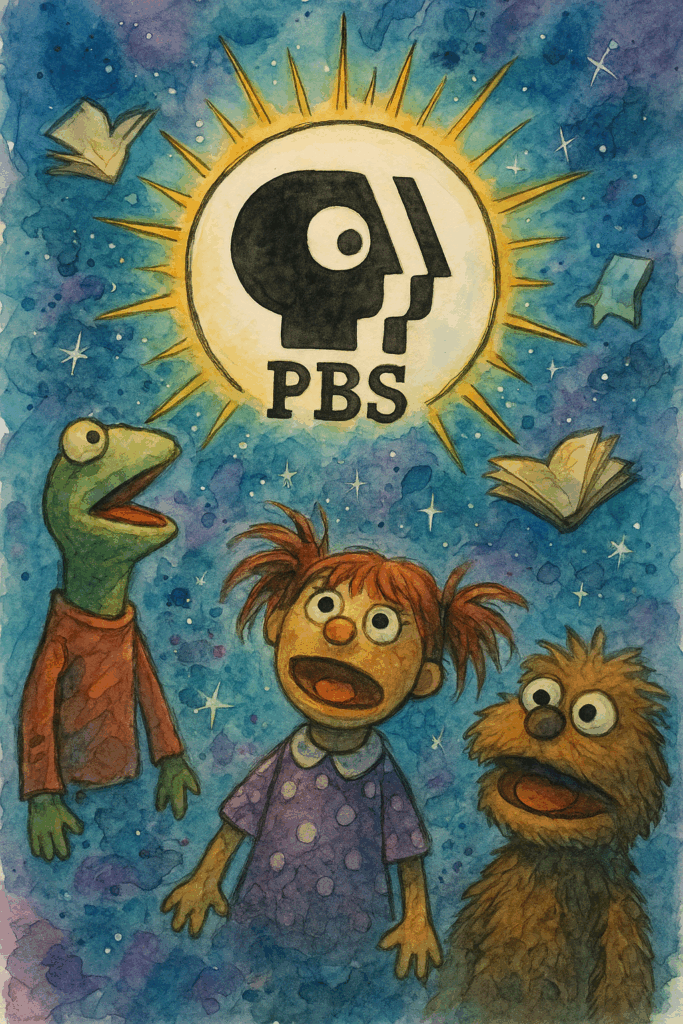
Barney: The Smile That Gaslit a Generation
And then… there was Barney.
Barney, who loved everyone. Endlessly. Relentlessly. Without a hint of discernment.
Even when someone was actively weaponizing a juice box, Barney just smiled wider and sang “I love you.”
At first glance, it seems wholesome. But just beneath the plush exterior lurked a doctrine of emotional suppression masquerading as friendship. This wasn’t kindness—it was toxic positivity in a purple skin suit.
Barney taught us:
- That every problem should be hugged away
- That expressing negative emotions was rude
- That discomfort meant you needed to smile harder
Let’s be clear:
- Not all emotions are pleasant—but they’re all valid
- Not everyone deserves your energy
- Boundaries are not optional
- And sometimes, the correct response is not “I love you”—it’s “please stop talking to me”
Barney didn’t teach emotional resilience.
He taught emotional erasure.
It’s no surprise we made up our own theme song—one darker, weirder, and definitely not printable in public school newsletters. That wasn’t just playground rebellion. It was a collective nervous breakdown in jingle form.
We weren’t being edgy. We were trying to metabolize the cognitive dissonance of being told everything was fine while feeling like the world was on fire.
Barney raised a generation who say “no worries at all :)” while actively dissociating.
He walked so corporate wellness programs could run.
What PBS Actually Taught Us
- Empathy is strength
- Inclusion is not negotiable
- Emotional intelligence matters just as much as spreadsheets
- Never trust a being that never blinks
- If you want to raise revolutionaries with emotional literacy, start with puppets and jazz
The Real Conclusion?
We don’t just need to save PBS.
We need to install it as the global emotional operating system.
Forget the New World Order.
Give us a fully funded Neighborhood of Make-Believe.
Unionize the puppets. Upgrade the cardigans. Let the children lead.
Support the Revolution (Lovingly):
- Support PBS
- Donate to NPR
- Fund the NEA
- [Give Elmo a sabbatical]
Final Thought
When the world finally collapses into a pile of scorched capitalism and broken Wi-Fi, someone will whisper from the rubble:
“Mr. Rogers warned us. But y’all defunded him.”
#PBS4Life #SaveSesameStreet #BarneyWasASpy #EmotionalLiteracyMatters #FundTheFeels
